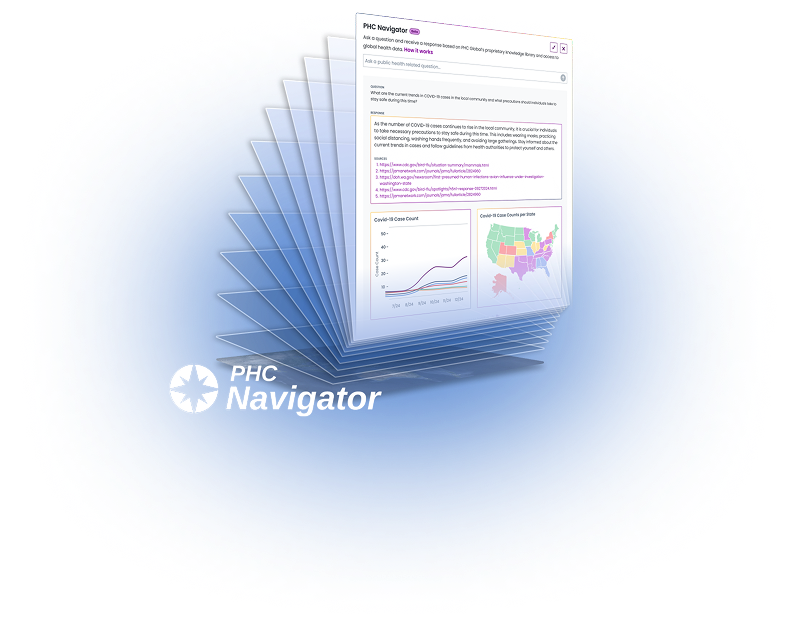Building the Future of Biodefense
Biothreat intelligence to deter and detect natural, accidental, deliberate and novel biological agents.
Biothreat intelligence to deter and detect natural, accidental, deliberate and novel biological agents.
Recommendation: Dengue is considered endemic on Easter Island (Rapa Nui), with recurrent, small locally acquired outbreaks reported since 2002. Organizations should reduce mosquito habitats by eliminating sources of standing water and applying insecticides to outdoor water storage containers. Employees can reduce infection risk by wearing clothing that covers skin, using mosquito repellents, and emptying standing water.
Situation: According to media sources, the 1st locally acquired case of dengue fever was confirmed on Rapa Nui, Chile's Easter Island since 2024. The individual contracted the virus on the island and had no recent travel history abroad. In response, health officials activated established protocols to prevent further infections and control potential spread. [Confidence: Very High]
Recommendation: The primary impact of highly pathogenic avian influenza (HPAI) outbreaks in commercial flocks is the increased cost of eggs or poultry products when outbreaks become more widespread. Organizations sensitive to egg and poultry prices should have a contingency plan for price volatility. PHC recommends that continuity plans be reviewed and updated in preparation for high-consequence infectious disease threats.
Situation: HPAI was detected at multiple commercial poultry farms in Maryland, North Carolina, and Wisconsin in recent weeks. In Maryland, 2 outbreaks in Caroline County have affected more than 155,000 commercial broiler chickens. North Carolina reported an outbreak in Hyde County impacting nearly 3.3 million commercial table egg layer hens. Meanwhile, Wisconsin confirmed an outbreak in Jefferson County, affecting over 1.2 million commercial table egg birds. [Confidence: Very High]
Recommendation: Organizations in Adams and Broomfield Counties, Colorado, should inform employees about the potential measles exposures. Organizations should provide flexible work schedules to support employees who need to make vaccine appointments for themselves or their family members. Measles is highly contagious and can quickly spread among unvaccinated individuals in a work environment.
Situation: Colorado reported a measles case in an Adams County resident, and it is 2nd case of measles at Broomfield High School (see PHC alert 3/2). Neither of the infected students had received the measles, mumps, and rubella (MMR) vaccine. The individual may have exposed the public at Broomfield High School (2/24-27), Chick-fil-A in Broomfield (2/25), and Chipotle in Westminster (2/26). Exposed individuals should monitor for measles symptoms (7-21 days from exposure). [Confidence: Very High]
Recommendation: Organizations in Micronesia, Kiribati, and the Marshall Islands should ensure employees have access to potable water and encourage them to seek treatment if they develop symptoms. Employees with young children may require absenteeism for caregiving support. Organizations should provide flexible work schedules to allow sick employees (or those with caregiving duties) to stay home until 48 hours after symptoms have stopped and to support employees making rotavirus vaccine appointments for family members.
Situation: Several gastrointestinal outbreaks were reported across the Pacific Islands recently. Micronesia confirmed a norovirus outbreak in Pohnpei State, totaling 12 cases from late Jan to late Feb. 92% of cases were hospitalized, and 2 pediatric deaths were recorded. A large jump in suspected rotavirus cases was reported in Kiribati, totaling 1,397 diarrheal cases, including 147 confirmed and 37 probable rotavirus cases. The outbreak was first declared in late Feb with 16 confirmed cases (see PHC alert on 2/24). Transmission is widespread across South Tarawa, North Tarawa, and Betio, though no cases have been detected on the outer islands. The Marshall Islands also detected rotavirus in 8 individuals in Majuro. The detections prompted clinical alerts and heightened surveillance. [Confidence: Very High]
Recommendation: Informational update only.
Situation: The WHO issued recommendations for the viral composition of influenza vaccines for the 2026-2027 northern hemisphere influenza season. The recommended strains for egg-based vaccines include an A/Missouri/11/2025 (H1N1)pdm09-like virus, an A/Darwin/1454/2025 (H3N2)-like virus, and a B/Tokyo/EIS13-175/2025 (B/Victoria lineage)-like virus. The recommended strains for cell culture-, recombinant protein- or nucleic acid-based vaccines include an A/Missouri/11/2025 (H1N1)pdm09-like virus, an A/Darwin/1415/2025 (H3N2)-like virus, and a B/Pennsylvania/14/2025 (B/Victoria lineage)-like virus. The announcement was made following a 4-day consultation examining global influenza surveillance data. Overall, influenza A viruses were predominant during the 2025-26 northern hemisphere respiratory season, with the A(H3N2) variant J.2.4.1 (“subclade K”) dominating following its emergence in August 2025 before spreading globally. Other variants of A(H3N2) and A(H1N1) were also recorded. Low levels of influenza B viruses (B/Victoria lineage) were detected, with no cases of B/Yamagata lineage viruses recorded since March 2020. [Confidence: Very High]
Leverage operational biosurveillance to anticipate and assess biological risks, drive decision-making, and protect mission-critical operations.


PHC Navigator is a biothreat intelligence engine built on expert-curated and proprietary data and models that provides actionable intelligence and insights


© 2025 PHC Global. All rights reserved.
We are excited to show you the PHC Pharos Platform in action!
Enter your contact information and we'll reach out to schedule a demo.